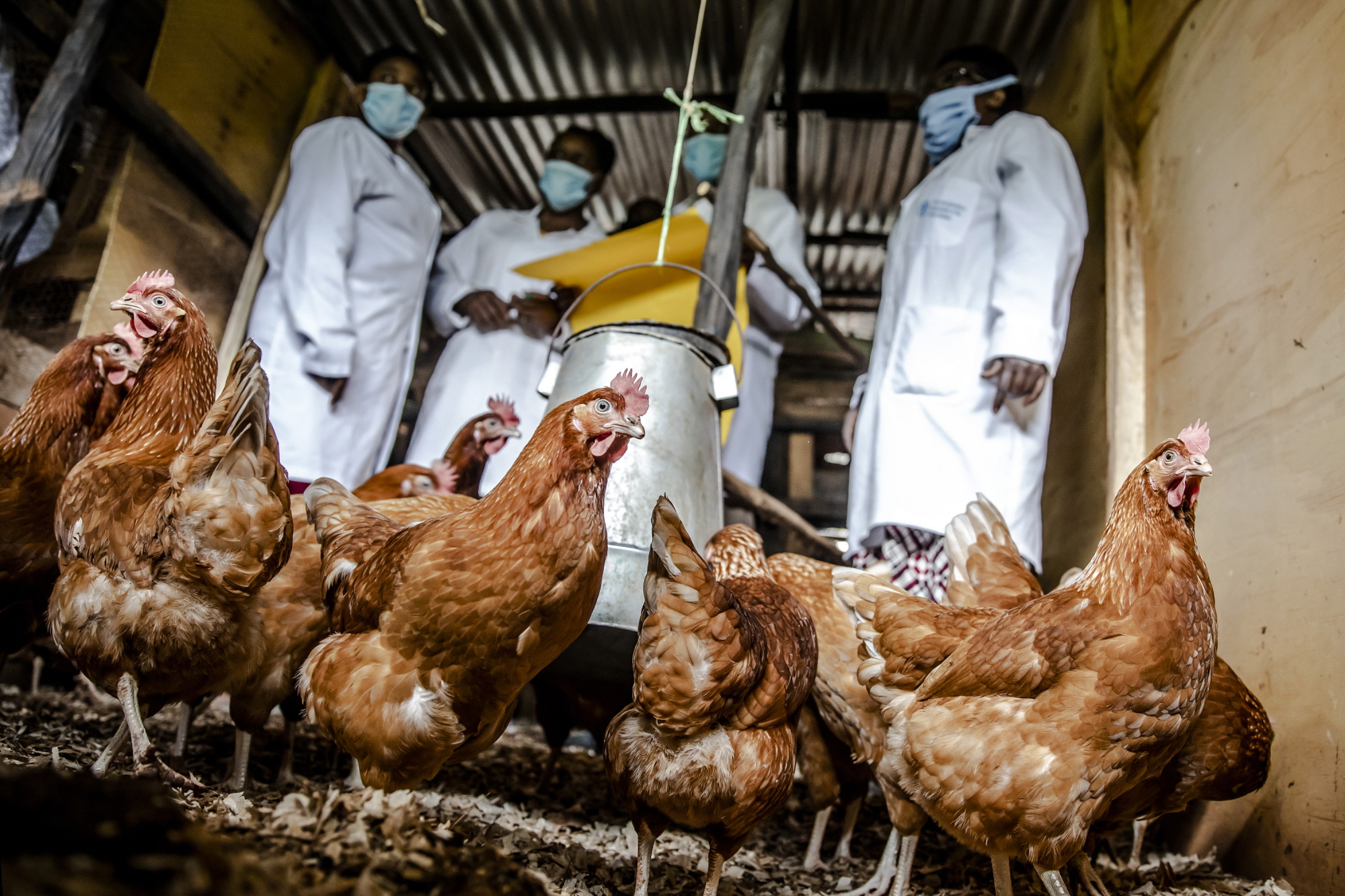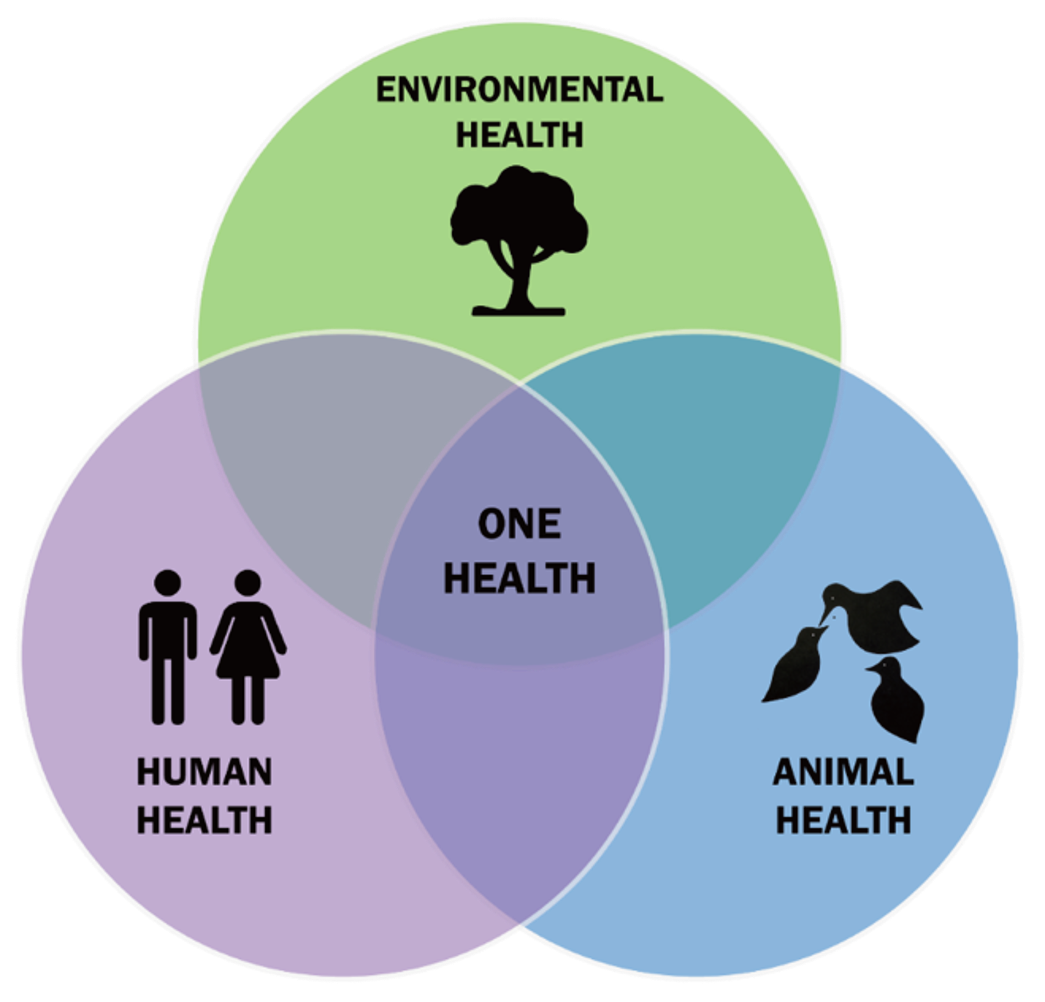Investing in One Health for pandemic prevention and preparedness

FAO-OIE-WHO One Health work focusses on targeted investment to prevent future pandemics, address endemic zoonotic disease and reduce risks from antimicrobial resistance.
COVID-19 has alerted the world to the catastrophic potential for spillover of zoonotic diseases and health risks at the human-animal-environment interface. The global pandemic has also reaffirmed the need for a joint, global approach to prevent emerging infectious diseases (EIDs).
The Food and Agriculture Organization of the United Nations (FAO) has joined hands with the World Organisation for Animal Health (OIE) and the World Health Organization (WHO), to promote a “One Health” approach to preventing pandemics and other animal related health threats.
Within this framework, the FAO Investment Centre, together with the International Fund for Agricultural Development IFAD, hosted a virtual knowledge-sharing event on investment in One Health on 19 April 2021, with partners including, OIE, WHO, the World Bank, the International Livestock Research Institute (ILRI), and other FAO divisions from across the organization.
The event underscored how – with the right investments – this multisectoral collaboration can address health risks caused by zoonotic diseases, antimicrobial resistant organisms, and other urgent or potential health threats.
“The impact of COVID-19, has led to increased interest in investment to advance One Health,” said Mohamed Manssouri, FAO Investment Centre Director. “The FAO Investment Centre’s role in scaling up One Health will help prevent, reduce and manage risks.”
Transforming the approach to emerging infectious disease through “One Health”
One Health – a collaboration of multiple sectors, agencies and disciplines working towards optimal health for people, animals and the environment – promotes collaboration between animal, public health and environment sectors. It addresses risk factors for EIDs, such as weak animal health and food safety systems, the unsustainable increase in livestock populations, and changes in the ecology and natural habitats due to agricultural or economic development.
FAO-OIE-WHO works as the Tripartite at regional and global levels, to design and implement One Health programmes, policies and legislation to prevent EIDs and other health risks at the human-animal-environment interface.
“Through One Health, the Tripartite addresses zoonoses and antimicrobial resistance by transforming investments in health systems and by fostering sustainable agricultural systems,” said Katinka de Balogh, FAO Senior Animal Health and Production Officer.
Early investment is key to pandemic prevention
Experts zeroed in on the urgent need for early investment to prevent the next pandemic.
Franck Berthe, World Bank Senior Livestock Specialist, reported that after the Avian Influenza crisis, the World Bank looked at the cost of prevention versus response. “In 2012, investment in prevention was estimated to be USD 3.4 billion annually, to bring animal and human public health services in low and middle-income countries to the standards of the WHO and OIE. This outlay is 12 times smaller than the cost of response at the time. Investing in prevention is a no-brainer with a greater than 80 percent return on investment,” he said.
“Controlling zoonotic diseases at their animal sourceis the most effective, sustainable and economic way of protecting people,” reiterated John Weaver, FAO Chief Technical Advisor.
Targeted policies and investments build preparedness
The Tripartite advocates for inclusion of issues related to wildlife and the environment into One Health strategies, as well as the application of the One Health guide and other tools.
“We are building healthy, sustainable and resilient systems at the intersection of humans, animals and the environment, to improve lives, livelihoods and wellbeing of people in the global south,” said Hung Nguyen, co-leader of the Animal and Human Health program, ILRI.
Keith Sumption, FAO Chief Veterinary Officer, called for global policies to tackle pandemic emergence through addressing One Health drivers. “Crises such as COVID-19 or locust infestations, demonstrate the need to involve wider multidisciplinary and intersectional areas, including crops, food security, land-use change or wildlife trade in dealing with challenges. It is only when these drivers are addressed through policymaking that we can achieve transformative change to prevent future pandemics,” he said.
One Health outlook
The event was the first formal collaboration on investing in One Health between IFAD and the FAO Investment Centre. One Health experts agreed that sustainable investment frameworks are needed to continue to strengthen health systems, improve animal and human disease surveillance and diagnostics, and enhance emergency preparedness and response.
“The demand from IFAD Member States to promote and adopt the One Health approach is growing,” said Jean Philippe Audinet, Lead Technical Advisor on Rural Institutions, IFAD. “Coordinated investments are necessary to generate collaborative programming, and further engage environment and wildlife sectors in One Health.“
Antonio Rota, Lead Technical Specialist in Livestock Development, IFAD, reiterated the necessity for collaboration and targeted investment. “Preventing the next pandemic requires effective intersectoral and multidisciplinary coordination, a strengthened science-policy interface, and sustained, targeted investments working locally, nationally, and globally,” he said. “Together we are collaborating with partner institutions to achieve optimal health through recognizing the interconnections between people, animals, plants and their shared environment."

